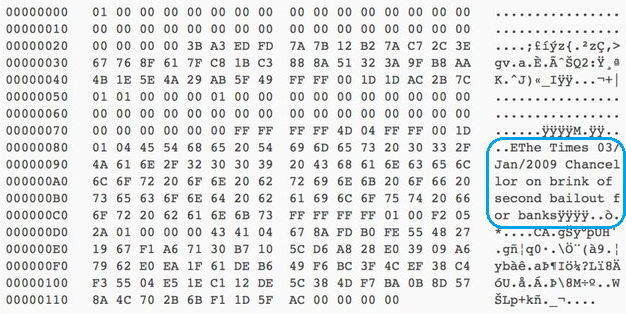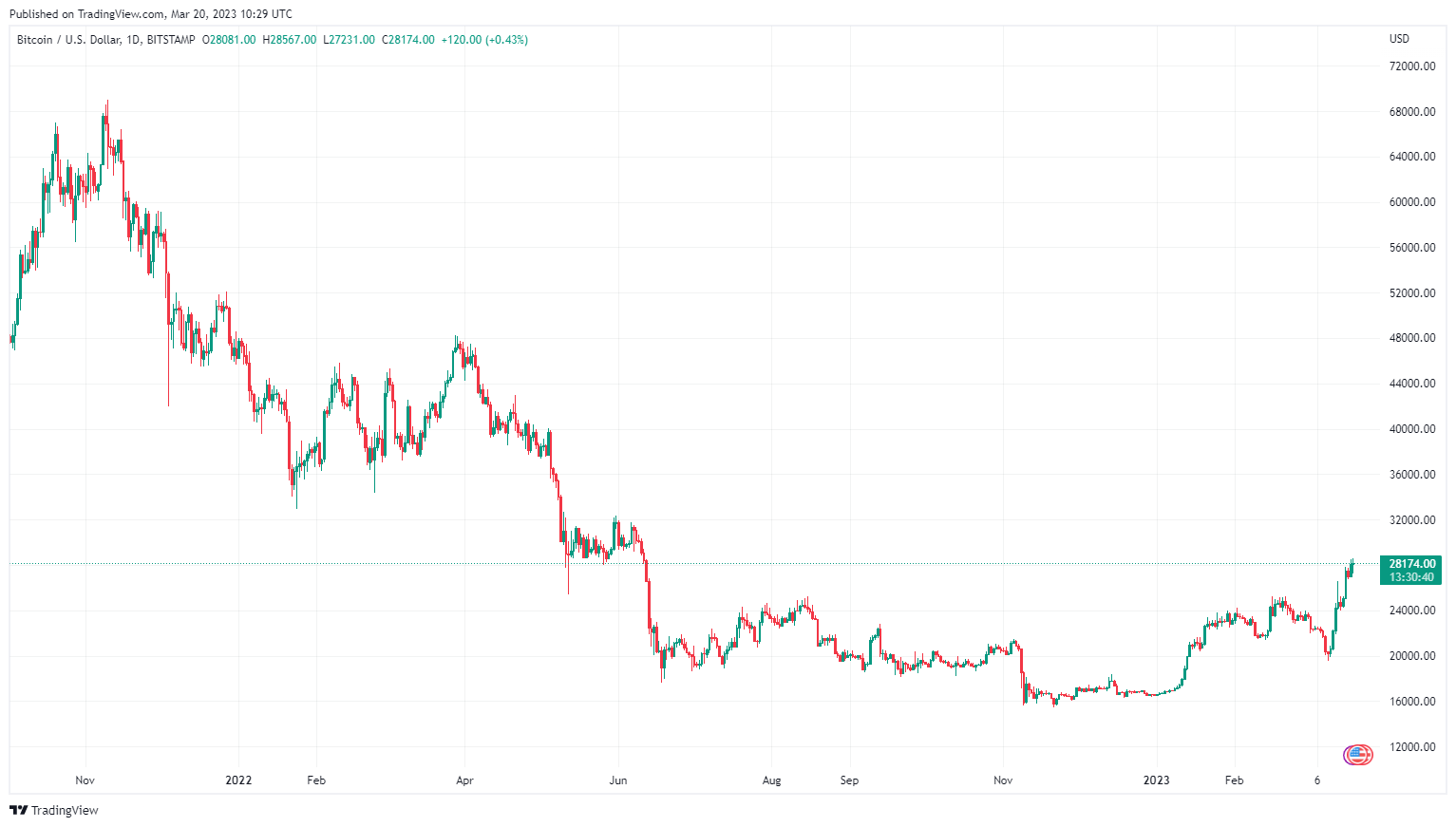Bitcoin (BTC) has had one of its best weeks price-wise, fueled by the recent banking crisis. Liquidity injections from global central banks are solidifying the cryptocurrency's position as digital gold and immutable, inflation-protected alternative money.
The recent collapse of several banks has shaken the entire financial world and prompted policymakers to act quickly to prevent a larger crisis. In the coming days and weeks, further measures are likely to be taken to stabilize the banking sector and put the economy on a sounder footing. JPMorgan analysts expect the Federal Reserve to inject up to $2 trillion in liquidity. In Switzerland, the SNB is supporting the new owner of Credit Suisse with up to CHF 100 billion in loans. Due to the banking crisis, some investors are now taking refuge in the crypto sector and hope that Bitcoin will be an inflation-resistant as well as unconfiscable alternative. Will Satoshi's vision come true?
SVB bankruptcy worries the U.S. central bank
Last Friday, the Federal Deposit Insurance Corporation (FDIC) took over the financial institution's deposits and Silicon Valley Bank was closed by authorities, citing insufficient liquidity. SVB's collapse was the largest bank failure in terms of assets since the 2007-2008 financial crisis. The Fed, the U.S. Treasury and the FDIC were still asserting on March 12 that the measure would not impose any financial burdens on taxpayers for the customers of the closed banks (Silicon Valley Bank and Signature). Shortly thereafter, Jerome Powell announced that he would reconsider the Fed's upcoming interest rate hike.
Originally, there was talk of a larger rate hike, but now the Fed may opt for a less aggressive approach in light of recent events. While the rate hikes are actually aimed at taming record-high inflation, the sharp measures have put significant pressure on the banking sector. After a turbulent week, the Fed may need to broaden its focus beyond inflation and consider other issues, which would be reflected in the dollar's purchasing power.
Following the bank runs in the US, Swiss banking giant Credit Suisse also experienced a run on its deposits. Insufficient liquidity and risky investment banking meant that the SNB had to inject money over the course of last week. Over the weekend, the takeover by UBS was announced. This created one of the largest systemically important financial institutions in Europe. The potential impact of the merger is still unclear, but confidence in smaller banking institutions could wane.
Bitcoin as an investment in times of crisis
Bitcoin operates on a decentralized network and does not require intermediaries such as banks or payment processors. This eliminates the risk of intermediaries going bankrupt and losing customer funds, as was the case with traditional financial institutions in the past. Instead, the network is maintained by a community of users who collectively verify transactions through a process known as mining.
In addition to its properties, Bitcoin also has political implications. In the first block of the decentralized Bitcoin ledger, pseudonymous founder Satoshi Nakamoto inserted a message as a reference from a Times article that is becoming relevant again, especially today. Finally, as an alternative monetary system, Bitcoin is immutable, inflation-resistant, and accessible to everyone. No central bank exists to intervene in the currency cycle and bail out dishonest players.

BTC price reacts to the recent events
As a result of uncertainty in traditional markets, Bitcoin rose to new highs for the year over the past week. Efforts to shore up the banking sector and speculation that the U.S. may initiate interest rate cuts later this year have bolstered the narrative for crypto investors. As a result, Bitcoin has soared nearly 30% during the crisis and is trading above $28,000 today for the first time since last June.





